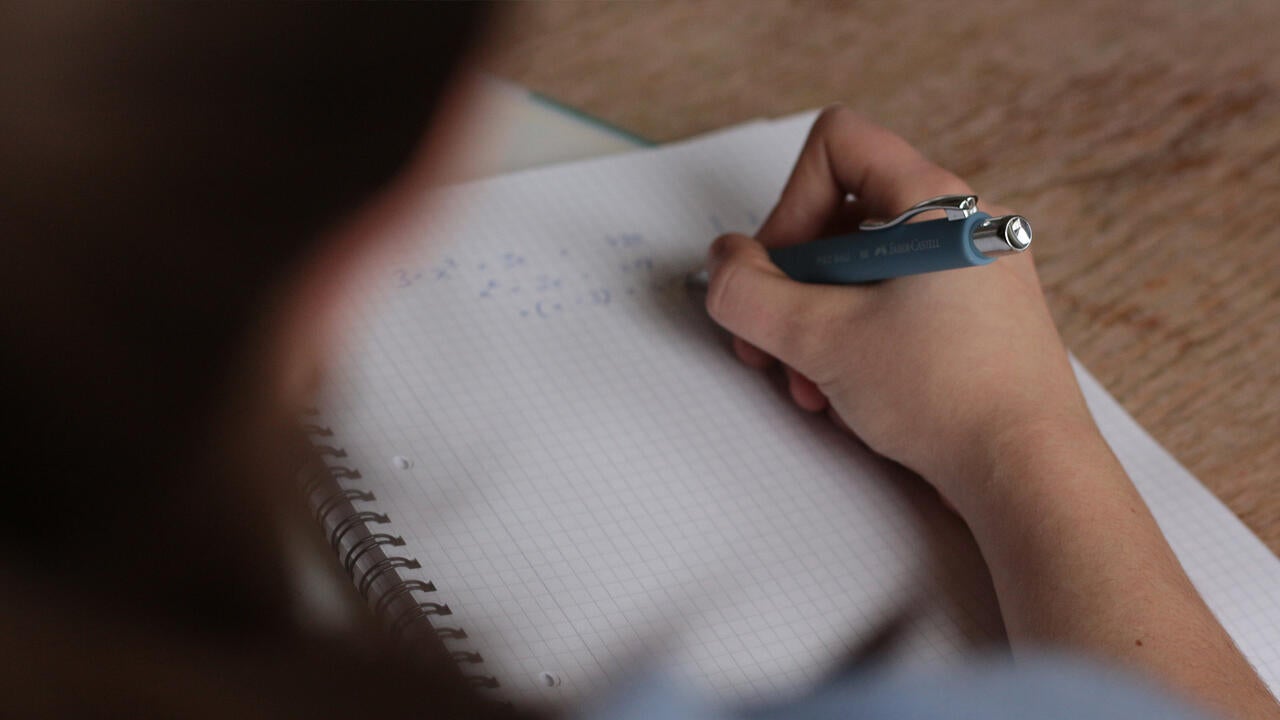
Overcoming classroom disruptions
Waterloo’s Faculty of Mathematics creates course to help incoming students affected by COVID-19

Waterloo’s Faculty of Mathematics creates course to help incoming students affected by COVID-19
By Ryon Jones Faculty of MathematicsThe University of Waterloo’s Faculty of Mathematics has introduced a new course designed to help secondary school students whose education was interrupted abruptly by COVID-19 sharpen their mathematical skills ahead of commencing their post-secondary education.
The new online, skills-based course, MTHEL 199, gives Waterloo’s incoming students extra practice in six branches of mathematics: inequalities and absolute values, radicals and rational expressions, trigonometry, exponential and logarithmic functions, polynomials and introductory calculus.
“We really wanted to make sure students coming into [their] first year had all the tools needed for success in terms of their preparation,” Ian VanderBurgh says, director of the Centre for Education in Mathematics and Computing (CEMC). “No matter how incoming students’ school year ended, we wanted to try and make sure their mathematical skills are at the right place.”
Students got the option to do the course in September when they commence their studies at Waterloo or in August before regular classes begin. Of the Faculty of Mathematics’ roughly 2,800 incoming students, 2,600 opted to start the course in August, with 600 students completing the course within the first three weeks of Fall Term.
The assessment for each of the six modules consists of 20 questions and is automated using the Mobius system, ensuring everyone gets slightly different problems. To pass the course, students need to score at least 75 per cent on each of the six modules and achieve an overall average of 85 per cent.
“Of the 2,600 students, there were approximately 1,800 of them who got 100 per cent on the first assessment, which undoubtedly means they did it once and went back and did over the ones they got wrong,” Shane Bauman says, MTHEL 199 lead instructor and CEMC lecturer. “We’re happy to see that despite only requiring a score of 75 per cent to pass a module, students are redoing questions that they get wrong as the point of the course is for them to prepare, learn and maybe fill in some gaps that happened because of how their grade 12 year transpired.”
The faculty recruited 10 secondary school teachers to support the students as they go through the modules. The teachers monitor the course’s discussion boards and assist when students get stuck on something, or they’ve watched the videos and are still not sure about how a particular concept works.
There were roughly 1,500 engagements on the discussion boards within the first three weeks, with approximately 215 questions. On average, the teachers have been replying to these questions within seven minutes.
“Pandemic aside, we think this course is a really good thing for the students,” Shane Bauman says, MTHEL 199 lead instructor and CEMC lecturer. “There are a lot of students who, perhaps due to their course selection, didn’t do a lot of math in the final year of high school or based on how their final semester worked out had a break from math among other things that interrupt students’ learning. So, this course allows incoming students to get the background and refresher they need.”

Read more
School shutdown drives students, parents and teachers to Waterloo’s math and computer science courseware, increasing engagement by more than 200 per cent

Read more
How a Waterloo Math professor is adopting new online, face-to-face testing methods to gauge student learning

Read more
Researchers used a mathematical model to explore class sizes and student-to-teacher ratios
The University of Waterloo acknowledges that much of our work takes place on the traditional territory of the Neutral, Anishinaabeg, and Haudenosaunee peoples. Our main campus is situated on the Haldimand Tract, the land granted to the Six Nations that includes six miles on each side of the Grand River. Our active work toward reconciliation takes place across our campuses through research, learning, teaching, and community building, and is co-ordinated within the Office of Indigenous Relations.